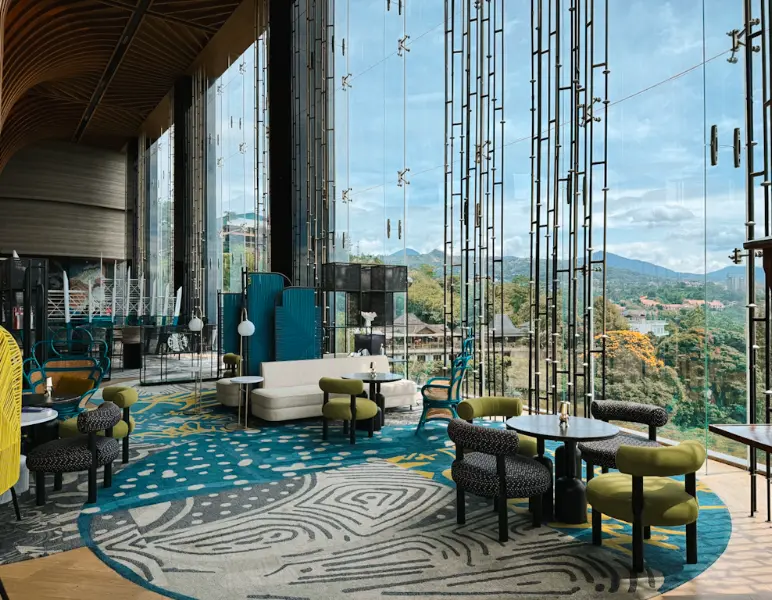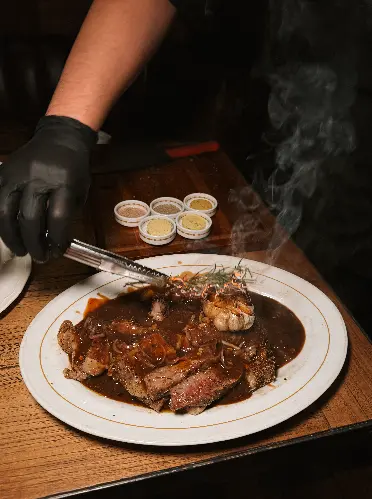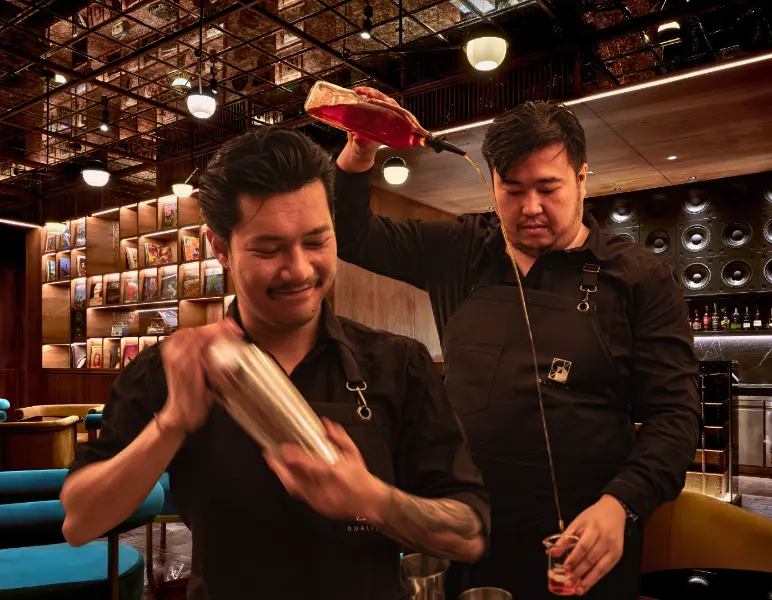This time, we sit down with Farah Mauludynna, the owner of Joongla, a conceptual dining experience in Bandung that has captured the attention of many. Her long journey leading up to the creation of Joongla is truly inspiring. From years in the digital and branding industries to embracing her passion for cooking, she has woven together her rich experiences to build a restaurant that celebrates local ingredients, storytelling, and Indonesian culture. Here, she shares with us the challenges, motivations, and vision behind Joongla, and why it’s more than just a place to eat.
Before we begin, could you tell us a bit about your background?
I spent over a decade working in digital agencies, developing branding for major companies, especially in the instant food industry. But at one point, I found myself drawn to cooking. I started experimenting with recipes on my own and eventually went to Ubud to learn more about slow food. I lived there for two years, studying cooking and food culture, which completely shifted my career. I went from managing big industry brands to freelancing with smaller businesses.
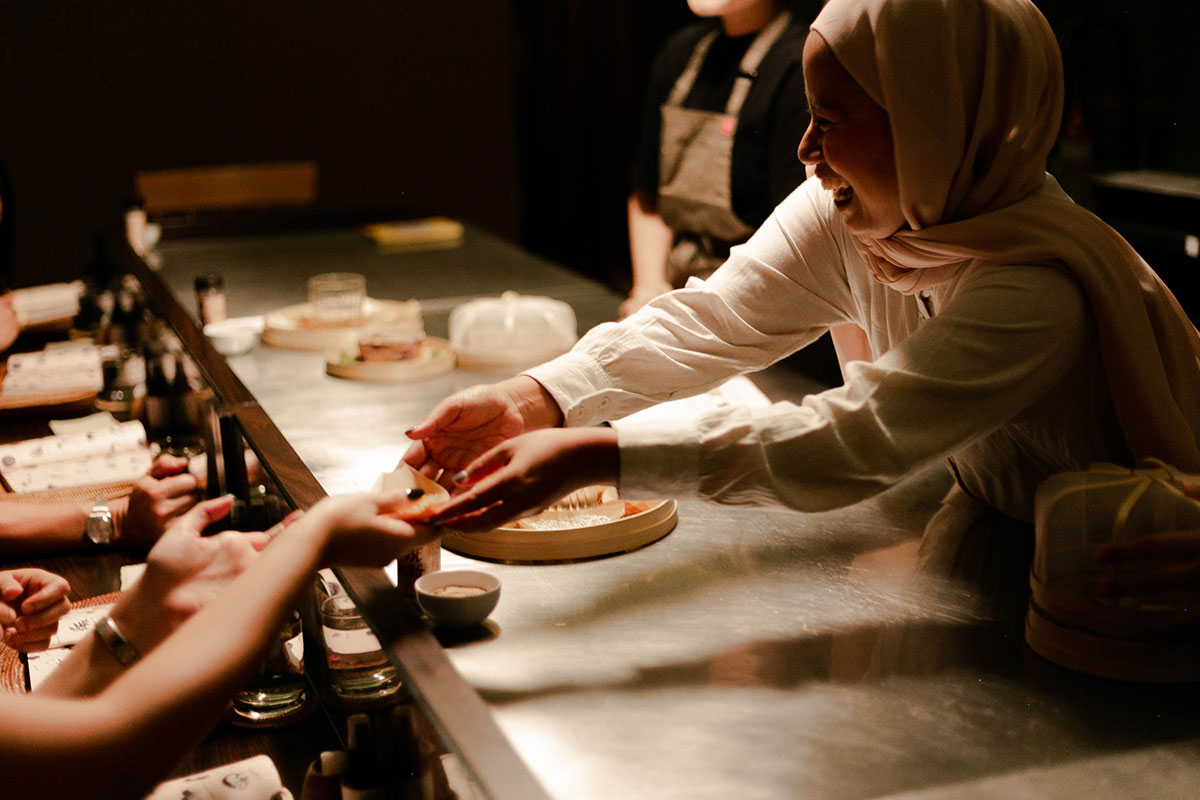
From your previous work experience, how did you decide to venture into the F&B industry?
When the pandemic hit, I began exploring the idea of opening an organic grocery store. My vision was to create a space where chefs could cook, but where the food would be prepared by the community. Then, one day while I was filming, the owner of a studio approached me with the idea of opening a restaurant at their location. Just seven days later, I received the interior design PDF, and that’s how Trouit came to life in Bandung. However, I soon realized that the ingredients being used were quite different from what I had learned in Bali. This inspired me to open a restaurant that would integrate sustainability and creativity in food.
In July 2022, I launched Joongla, and by December 2023, I was fully committed to running it. At Joongla, our values are built around three key elements: culture and history, local ingredients, and storytelling.
What’s the story behind the creation of Joongla? What motivated you to start it?
I’ve always enjoyed cooking, though I never fully pursued it due to time constraints. It was when I turned 30 that I decided to give myself the gift of clean eating. Diving deeper into food opened my eyes to how much of it is influenced by industry standards, and cooking soon became a way of self-expression for me. At Joongla, every dish is made with fresh, clean ingredients—no artificial colors or additives. We pour love into every dish because that’s the essence of Joongla. Food, to me, is a powerful way to convey emotions and culture. Through Joongla, I want to highlight the diversity of Indonesia’s 17,000 islands. It would take a lifetime to explore the culinary richness across the nation.
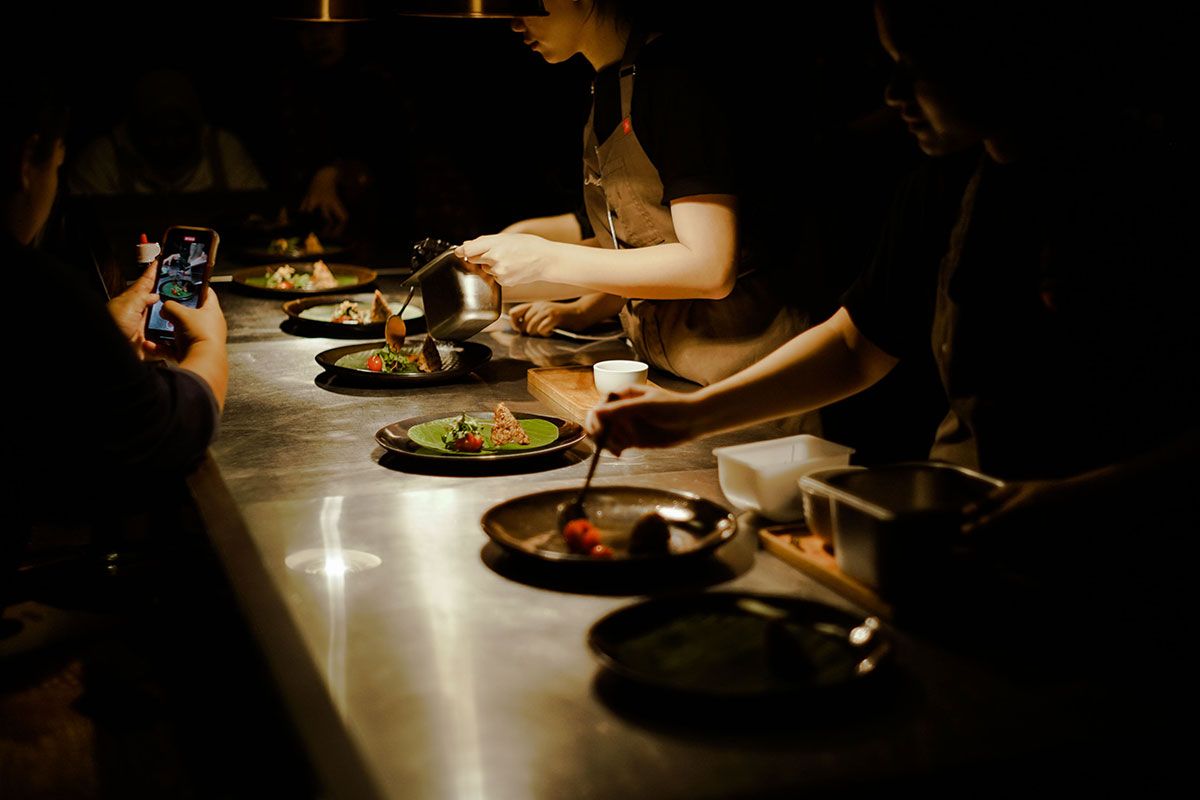
What challenges have you faced in running Joongla?
Joongla operates in a niche market, primarily attracting gastronomes and foodies. Some people find it overwhelming or think it’s expensive, but we’re seeing more customers coming from outside the city. In our third year, Joongla has become more of a destination. Another challenge is that we aim to be a platform for young culinary talents, which requires additional nurturing and structure.
Before Joongla, how were you known in the industry?
I wasn’t recognized as a gastronomist initially. I worked in the clothing industry and was involved in various indie music communities. I also had a background in journalism, specifically copywriting, which gave me a strong foundation in storytelling—an element I carry into my work at Joongla.
We see that Joongla provides many opportunities for young people to participate. What’s the reason behind this decision?
It’s simply the right time. At 40, I realize that my network, knowledge, and access are privileges, and I believe in sharing these with young people. They bring energy, ideals, and time to the table. At Joongla, we provide a platform for them to grow and contribute to something meaningful. We’re building history and shaping the culinary landscape in Bandung. Joongla is an ecosystem—an environment that understands itself and its surroundings, helping to carve out Bandung’s identity on the global culinary map. We have seven essential elements behind each dish: intention, flavor, story, texture, and more. These are the aspects we make sure to check off here. Joongla has truly established its own character.
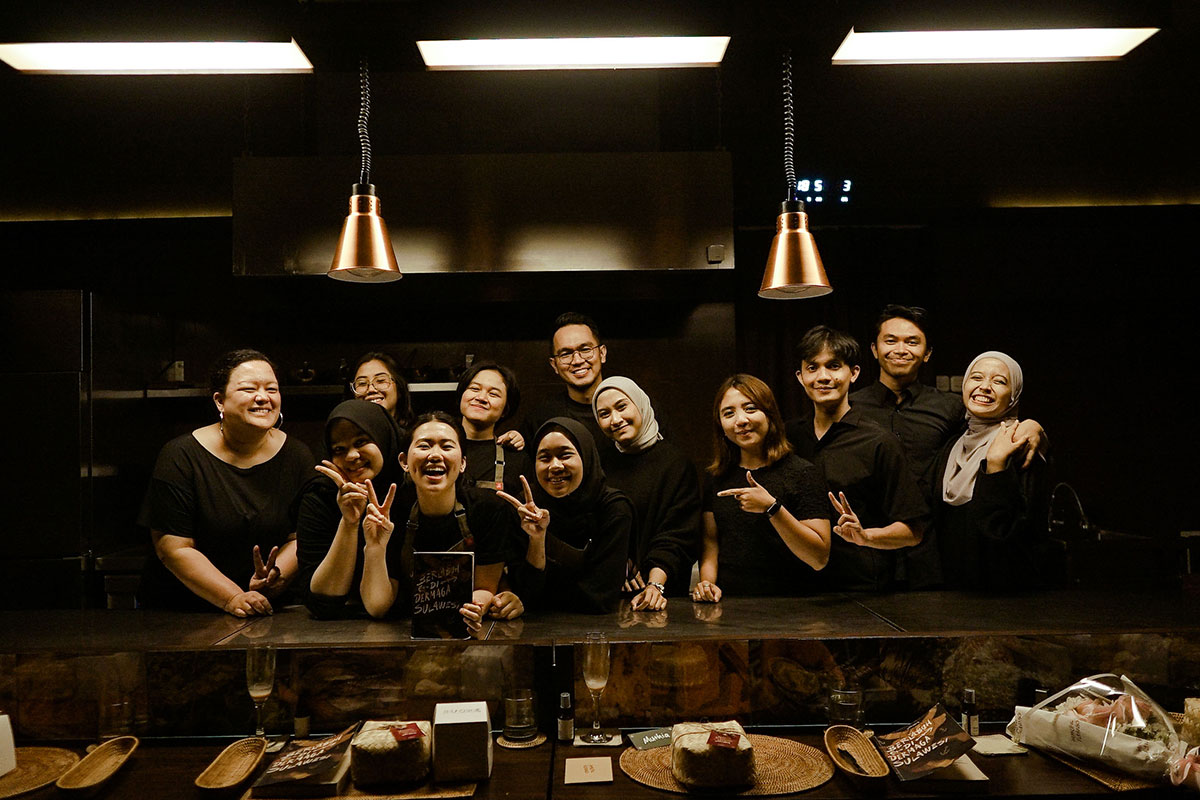
What are your thoughts on Bandung’s culinary scene?
Bandung’s culinary market is complicated. It’s very driven by FOMO (Fear of Missing Out), and there’s a nostalgic mindset where people expect Bandung food to be cheap and tasty. This has made many local businesses hesitant to try new things. People often visit a place just once, and factors like income levels contribute to this behavior. The market remains tricky because the ecosystem isn’t well connected—the government, farmers, and academics aren’t fully aligned to support the growth of the local culinary scene.
How do you position Joongla within Bandung’s culinary business?
Our focus is on staying relevant and consistent in quality. While it might seem like we focus on just a few things, there are many smaller details we work on behind the scenes, which will make a difference in the long term. We’re open every day, and we adjust the pricing based on the day to better serve our audience. Our target is both the warm and cold markets—those who have heard of Joongla but haven’t visited, and those who are just discovering us. Entering our third year, we’ve remained consistent, and next year, we plan to collaborate with hospitality and resort properties, which is a sign of our growing recognition. Our dream is getting clearer, and we’re gaining confidence in our direction.
What advice do you have for people who want to start a culinary business?
First, understand yourself and work through past traumas because you’ll be the energy source for the entire team. Second, have a clear roadmap. A strong vision and mission will help you attract a team that resonates with your values. A business is like an orchestra—everyone must be in sync with the rhythm and melody. Finally, seek out mentors who can support you, especially when you doubt yourself.
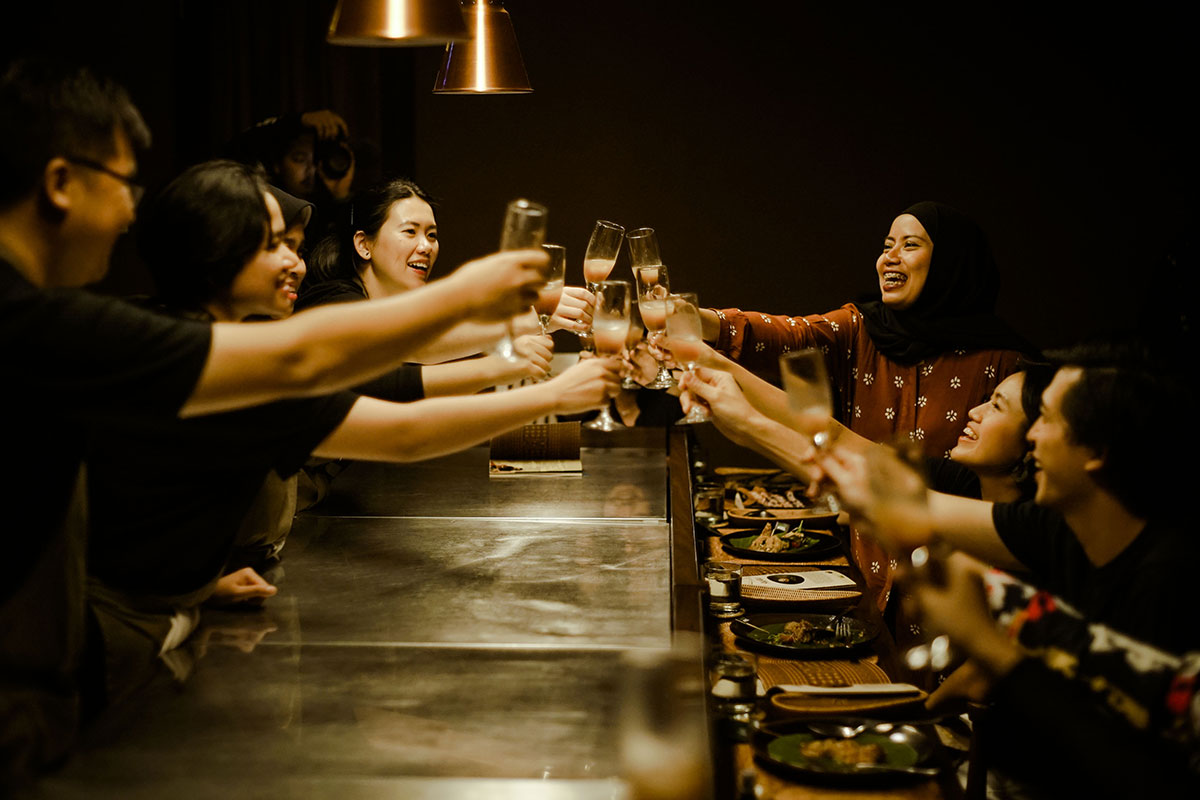
What are Joongla’s future plans?
Our goal for Joongla is to become a serious entity with high standards. Standards are essential if we want to make a lasting impact. Consistency in quality isn’t easy to maintain, but we are determined to make Joongla a nationally and internationally recognized brand. We’ve already been invited twice to events in Thailand and Malaysia, which boosts our confidence. We aim to place Bandung on the global culinary map by setting a benchmark for conceptual dining experiences.
Thank you, Bu Dynna, for taking the time to share your journey and insights with us. Have a wonderful day!
My pleasure! Wishing you a great day as well.



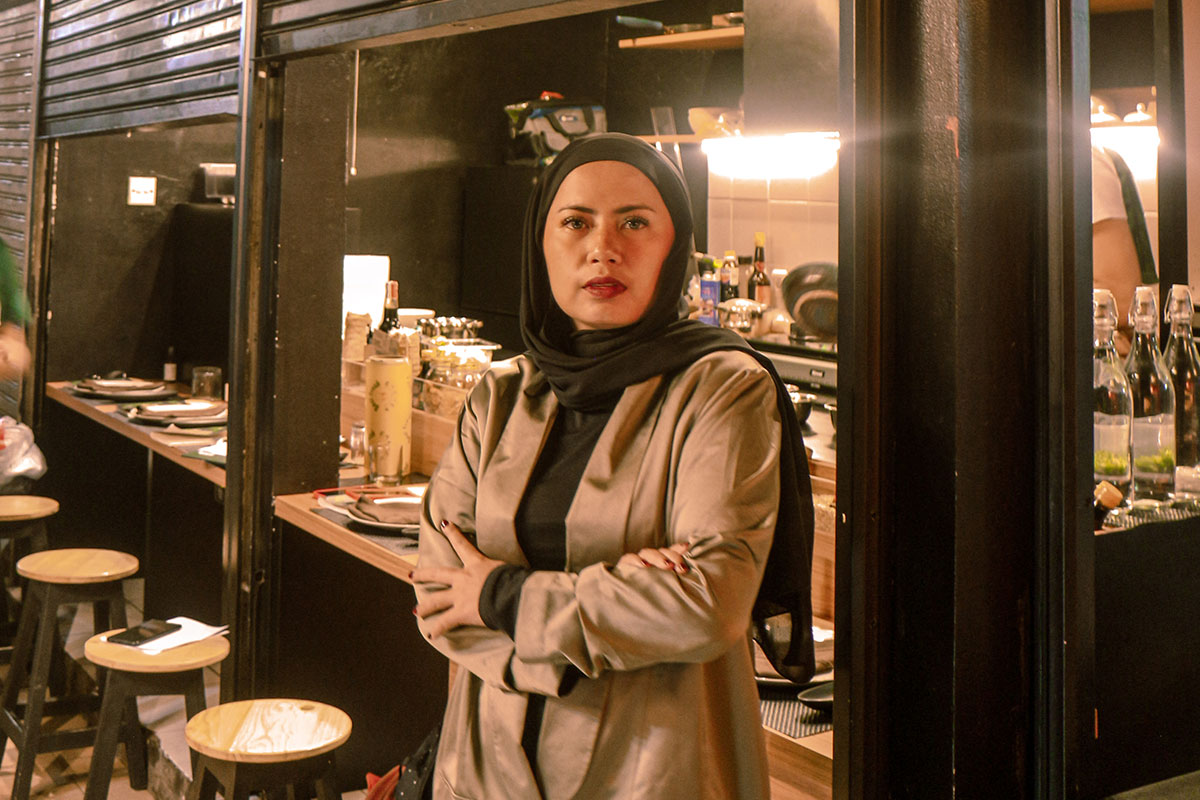
 Aldito Virandi Tagor
Aldito Virandi Tagor
 Nov 12, 2024
Nov 12, 2024
